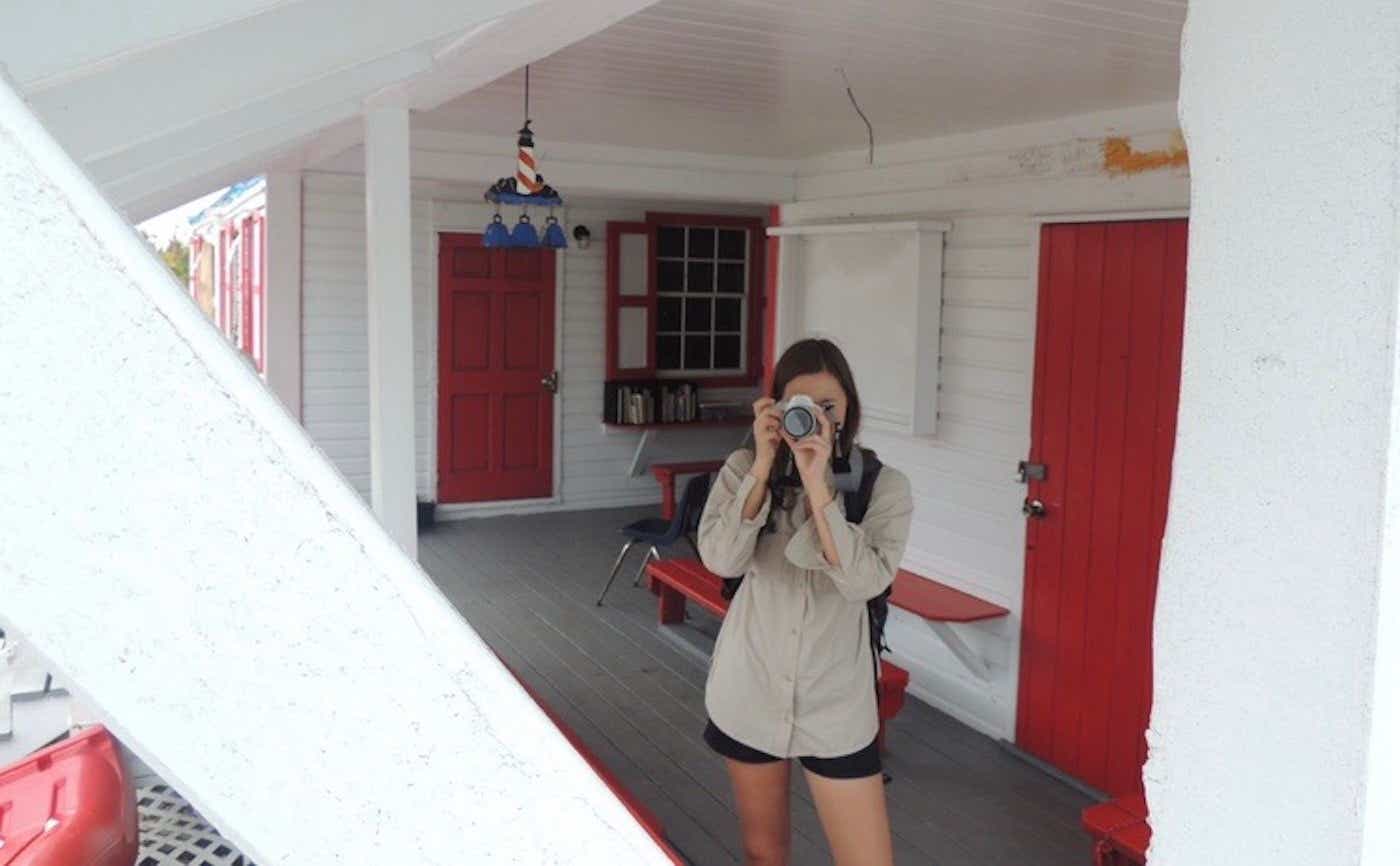Once upon a time, in the college town of Chapel Hill, life was very different. As a current senior journalism student at the University of North Carolina, I often feel like my college life before Covid-19 shutdowns was an imagined fairytale.
The doors of my journalism school were once propped wide open; kids packed tightly into the broadcast studio on show days for live tapings of “Carolina Week” and “Sports Xtra.” But that on-air sign hasn’t beamed red in months. My once abuzz school sits in silence.
In August, due to a huge spike in Covid-19 cases, classes were pushed completely online after just the first week of in-person instruction. In reminiscing on my fairytale college days, I often return to the Most Memorable Week of my collegiate journalism career.
It was during my junior year.
Hurricane Dorian swept through the Bahamas. I at last faced the kind of story I’d only ever watched unfold on the news. With a plane ticket trembling in my hands and pounds of heavy camera equipment, I left for Hope Town, Bahamas on a grant from my journalism school to tell stories of survival from the front lines.
Mike was a red-cheeked man of about 40 or so. His voice was deep and rich. The day Dorian made landfall was the day he realized glass could bend; he pressed his palms up against the windows of his home and felt the rough wind causing the glass to cave inward. When the winds were at their worst, Mike grabbed onto a drifting kayak — and used it to save the lives of his two neighbors.
He said he was done talking about the hurricane, until he heard about me.
Mike went to UNC-Chapel Hill, too and he said he decided to talk to me because of our shared alma mater. When I returned home, my story from the trip aired on our local news station, reaching peak ratings for the entire month of March of 2019. I felt pride in this moment.
It’s coming up on a year since my conversation with Mike. You can imagine my joy when I received approval from my journalism school advisers to make a second trip to the Bahamas this past August to report on the continued recovery efforts. You can then imagine my despair when Covid-19 barred all university-sanctioned travel.
Instead of reporting in the Bahamian sun, I’m stuck inside my parent’s house behind a computer screen. My days consist of pestering potential story leads who have no time to talk, or trying to find a job that doesn’t require three to five years of previous work experience.
However, I decided I wouldn’t let the cancellation of this trip stop me from doing some on-the-ground reporting. Once I realized my university would fund travel within the state, I pitched a story and quickly received approval to spend two days in the Outer Banks with the Hoi Toiders — a group of island natives who speak in a dialect similar to old Elizabethan English.
We sat at a distance from each other, wearing masks and profusely sanitizing our hands in between interviews. The video piece I’m working on highlights their struggle to keep the dialect alive, as it’s projected to die out with the very few who still speak it. In an unfortunate coincidence, The Hoi Toiders’ home, like Mike’s, was also struck terribly by Hurricane Dorian.
I don’t know when I’ll get to the Bahamas and see Mike again. I also don’t know when my university will resume in-person instruction, or when students will finally flood onto the quad. It looks like we won’t be back on campus anytime soon: our spring break was just canceled, which doesn’t exactly make me hopeful that Covid-19’s defeat is on the horizon. I don’t know when the red on-air sign in the broadcast studio will flip back on again, or when the virus will meet its match in a tiny glass vial.
In the meantime, there’s an obnoxious amount of Bahamian-style macaroni and cheese in my fridge. (Mike recently sent me the recipe for his famous macaroni after he found out I could no longer make the trip to the island.)
And I’ve really enjoyed putting together the story about the Outer Banks. This semester hasn’t been easy, but through this experience, I’ve learned being a journalist simply requires getting out there, and having the willpower to ask important questions about the world around you — no matter the circumstances.
This originally appeared on Medium.









